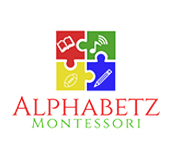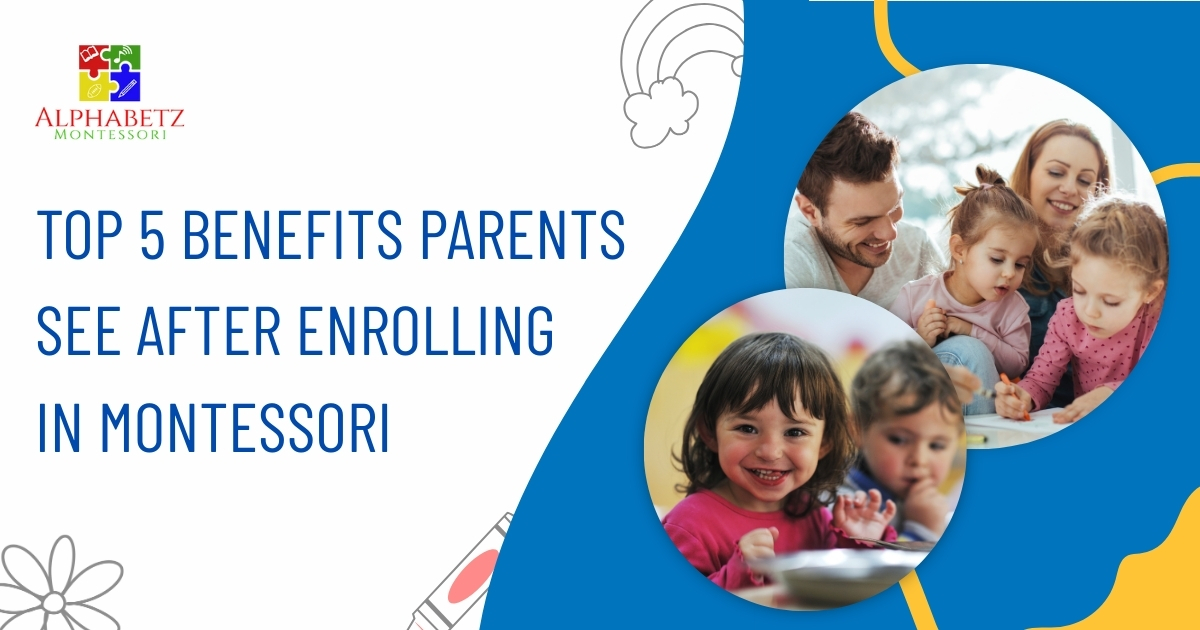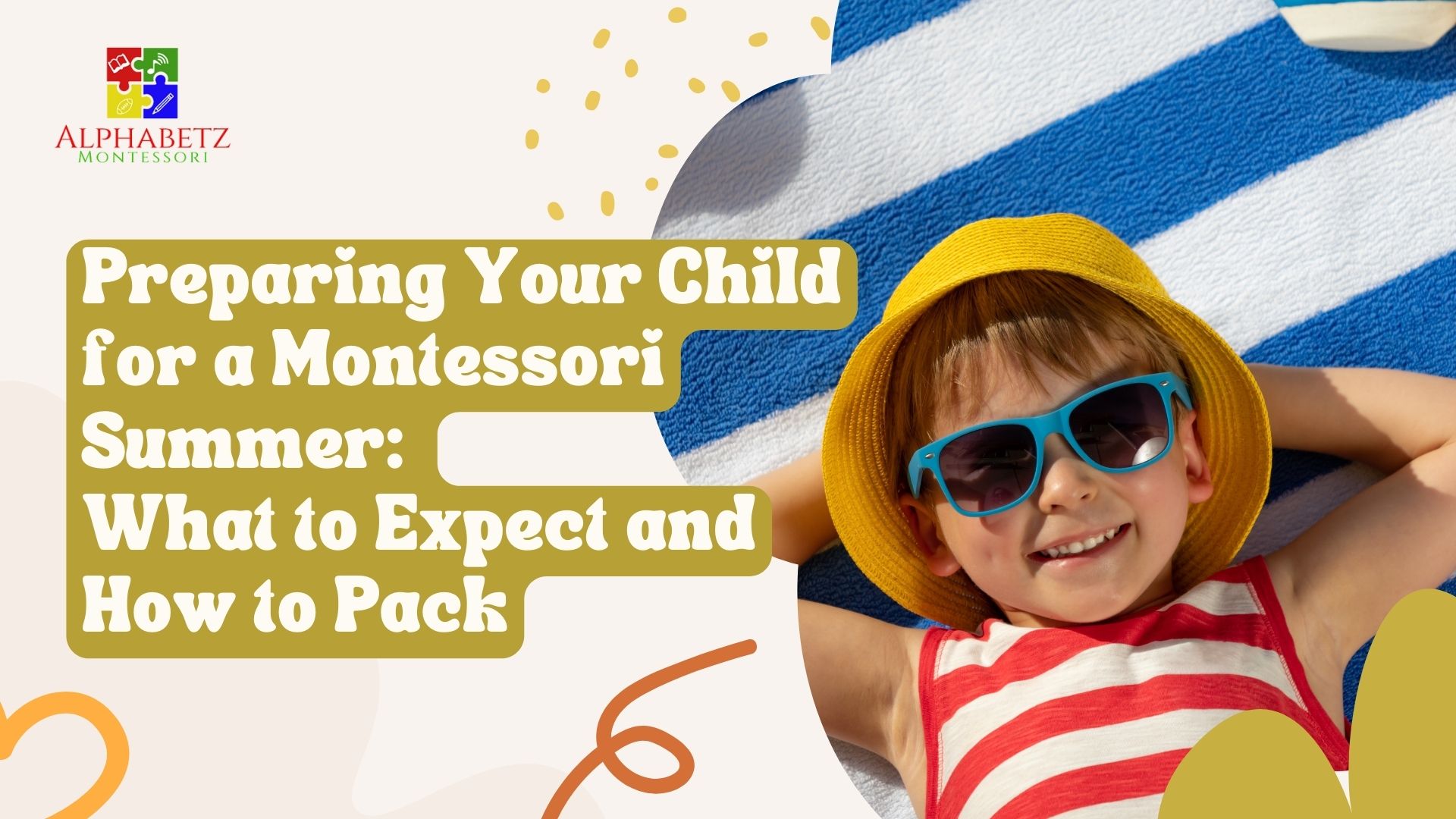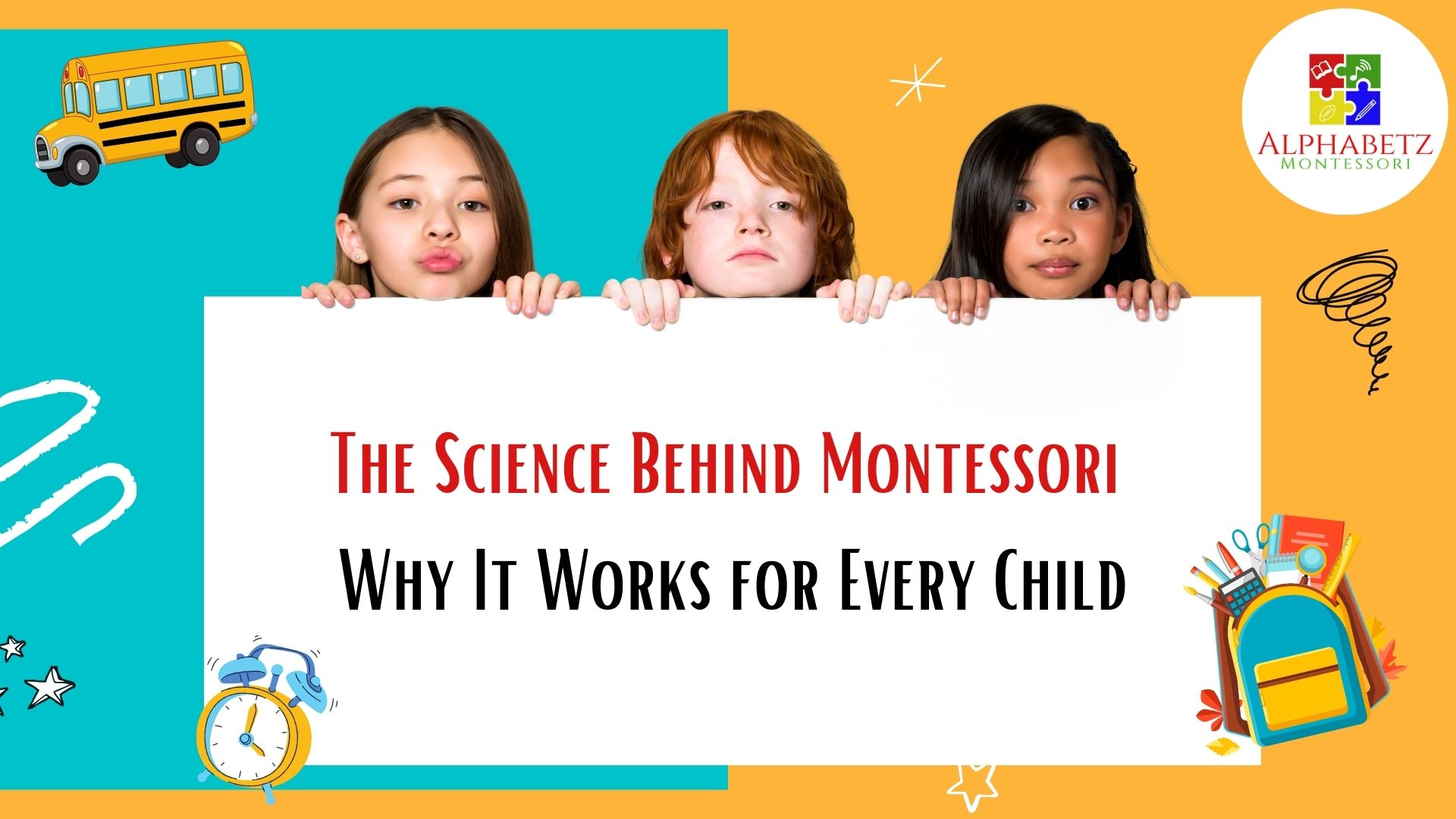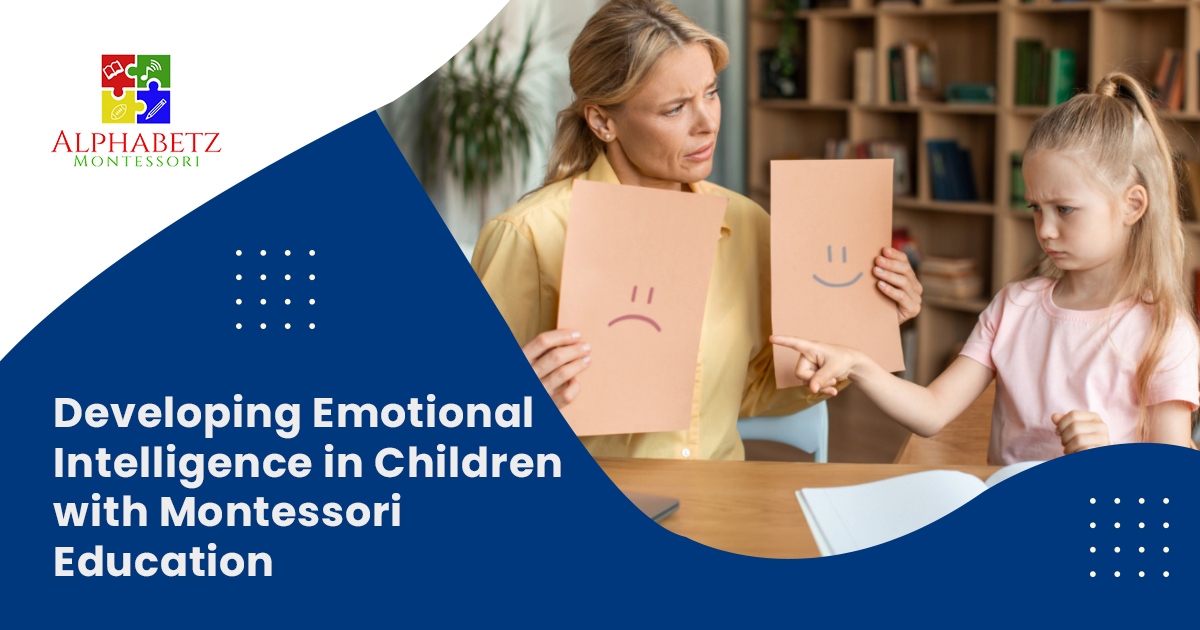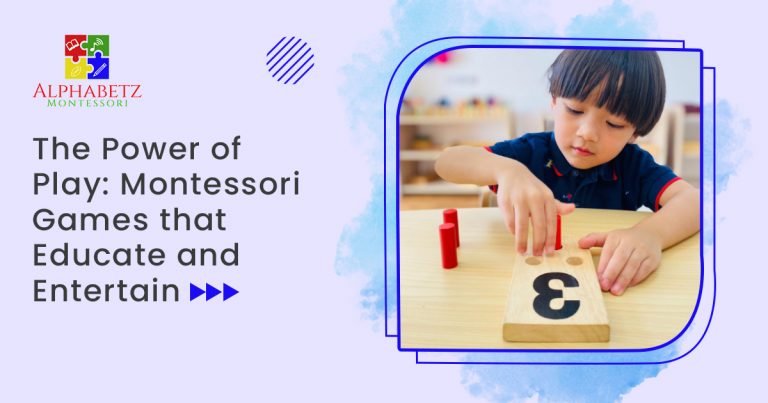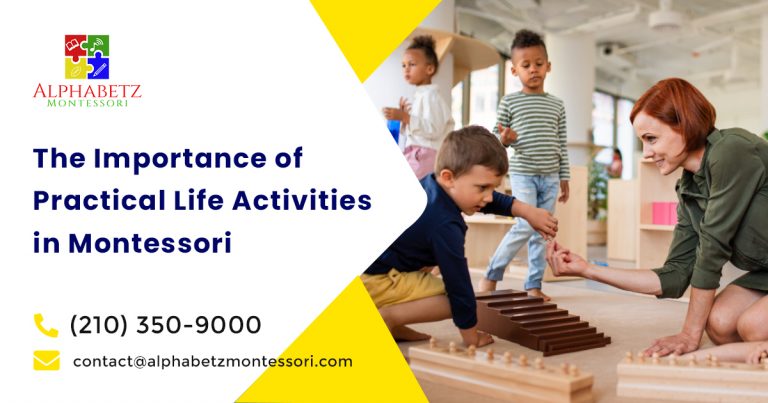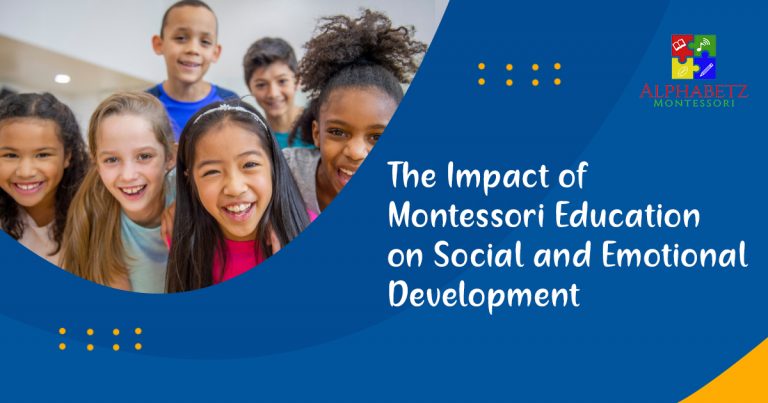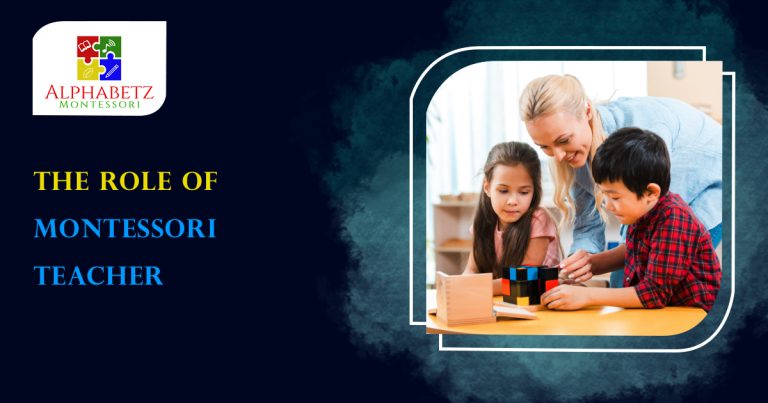Explore Montessori insights on holistic child development, education, and nurturing at Alphabetz Montessori’s blogs. Your child’s future is our focus.
Choosing the right school for your child is one of the most important decisions you will ever make as a parent. You want an environment that nurtures independence, curiosity, and confidence, while also providing a solid academic foundation. Many parents discover that Montessori education offers exactly that and more. At Alphabetz Montessori, we have seen countless families experience the positive impact of the Montessori approach firsthand. Here are the top five benefits parents notice after…
As summer approaches, many parents begin planning how to keep their children engaged, active, and learning during the warmer months. At Alphabetz Montessori, our summer camp offers an enriching environment where children explore nature, dive into hands-on activities, and continue their developmental journey—all while having fun! If you’ve enrolled your child in our Montessori Summer Camp or are considering it, here’s a helpful guide on what to expect and how to prepare your child for…
In today’s fast-paced world, parents are constantly searching for the best education for their children—one that nurtures creativity, fosters independence, and instills a lifelong love of learning. Montessori education has been a time-tested, research-backed approach that provides all of this and more. But what exactly makes Montessori so effective? Let’s explore the science behind Montessori education and how Alphabetz Montessori brings these principles to life, offering your child the best start to their academic journey.…
Building a Strong Foundation for Life At Alphabetz Montessori, we believe in nurturing the whole child. This goes beyond just academics and encompasses the crucial development of emotional intelligence (EQ). In today's world, EQ is just as important, if not more so, than IQ for success. Here's how the Montessori method, a leader in Montessori preschool education, fosters emotional intelligence in children: 1. Building Self-Awareness: The Cornerstone of EQ The Montessori classroom, designed for Montessori…
Raising a curious infant is akin to being an explorer's guide, navigating through a world brimming with wonder and discovery. As caregivers, our role is not just to safeguard this journey but to enrich it, ensuring that every little exploration is both safe and stimulating. This blog delves into the art of fostering curiosity in infants, ensuring their adventures are as secure as they are enlightening. Setting the Stage for Safe Discovery Creating a secure…
Summer is a time of freedom and exploration for children, a break from the routine of school that opens up opportunities for growth and learning in new environments. One such opportunity is offered by Alphabetz Montessori through its summer camp program. Alphabetz Montessori, rooted in the Montessori educational philosophy, emphasizes self-directed activity, hands-on learning, and collaborative play. But when considering a summer camp for your child, one question often arises: "Will my child be fed…
In the modern world, children are often bombarded with screens and electronic devices that can limit their engagement with the physical world. As a result, the importance of play, particularly in an educational context like Montessori, cannot be overstated. The challenge lies in finding games that not only capture a child's attention but also contribute to their educational development. Montessori education has long recognized the significance of play as a powerful tool for learning. Engaging…
In the realm of Montessori education, there is a deep-rooted commitment to providing children with a holistic learning experience that encompasses not only academic knowledge but also practical life skills. This unique approach is a hallmark of Montessori schooling, and it's essential for fostering the development of well-rounded, independent, and capable individuals. What Are Practical Life Activities in Montessori? Practical life activities are a fundamental component of the Montessori education system. These activities encompass a…
At Alphabetz Montessori, we believe in fostering well-rounded development in children, and that extends beyond academics. One of the remarkable aspects of Montessori education is its profound impact on a child's social and emotional growth. In this blog post, we'll explore how the Montessori approach nurtures these crucial aspects of development and equips children with valuable life skills. The Foundation of Social and Emotional Learning in Montessori: Montessori education places a strong emphasis on creating…
The Montessori approach to education is renowned for its child-centered philosophy, emphasizing the holistic development of each student. At Alphabetz Montessori, we embrace this methodology and recognize the indispensable role of our teachers in facilitating children's learning journeys. In this blog post, we will delve into the multifaceted responsibilities that our Montessori teachers undertake to create an enriching educational environment for every child. Observers: Understanding the Individual One of the fundamental aspects of a Montessori…
